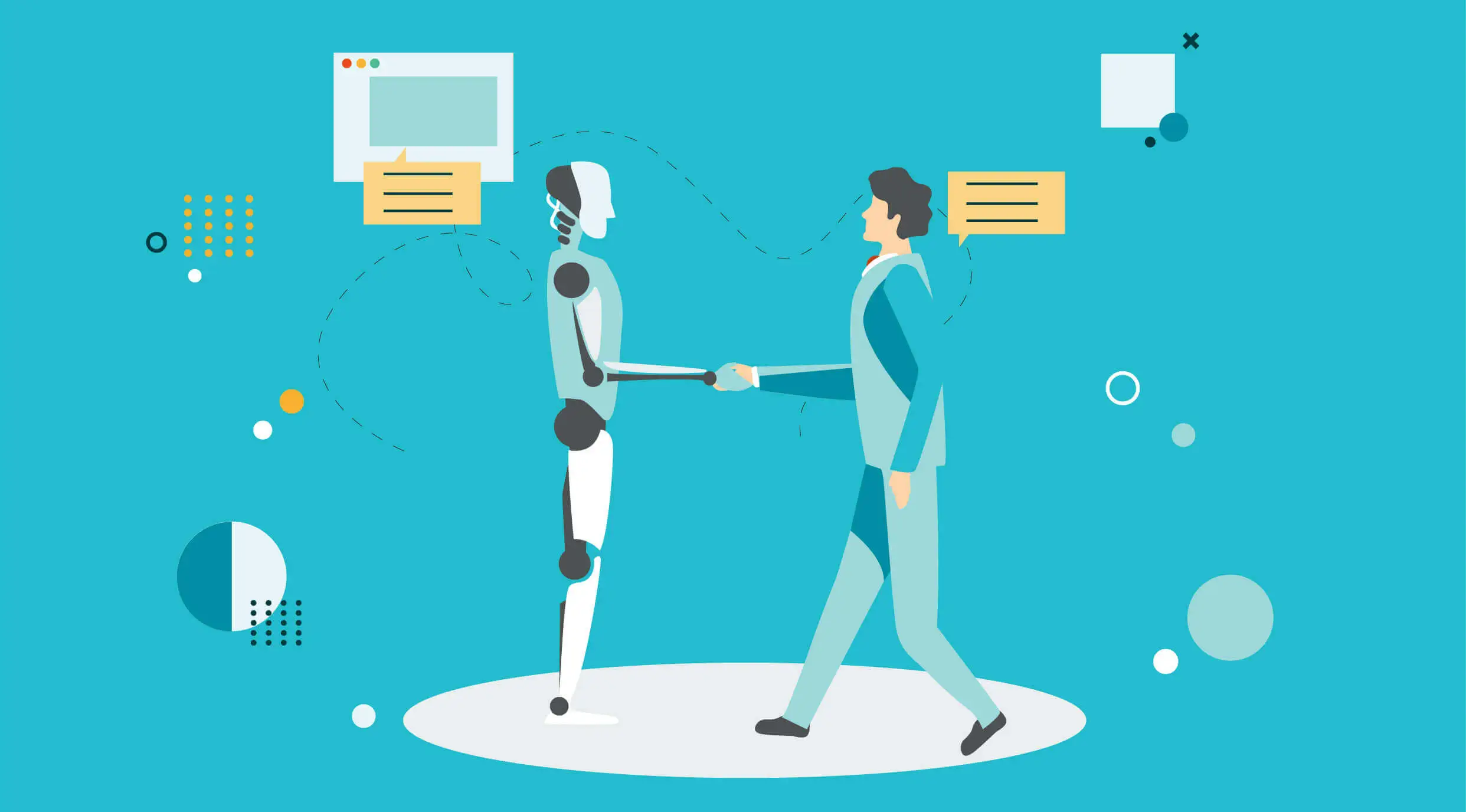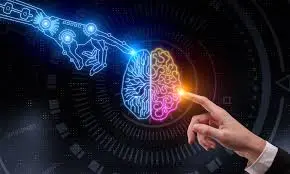Index
Introduction
The future of AI: What to expect in the next 5 years
The future of AI holds huge promises as it continues to change the industries and reshape the human-technology relationships. We can expect remarkable advancements in the field of artificial intelligence that will have a large impact on various parts of our lives, in time as short as the next five years. From better automation and personalized experiences to improved healthcare and cybersecurity, AI is ready to shake up how we work, communicate, and carry on our daily lives. However, with these advancements also come important considerations surrounding ethics, regulations, and the collaborative role of humans and AI.
Moreover, the integration of AI will revolutionize industries by streamlining operations and boosting productivity through automation. Manufacturing processes will become more efficient, logistics will be optimized, and customer service will be raised to new heights. Organizations will be seeing the power of robotic process automation (RPA) and intelligent automation to delegate repetitive tasks to machines, freeing up human capital for more creative and strategic works.
Increased automation in industries
 Automation will not only simplify but also optimize difficult and complicated workflows by reducing manual interference and reducing errors. From data entry and document processing to supply chain management and inventory control, automation will enhance efficiency and streamline operations across industries. Automation of repetitive and time-consuming tasks, will give workers more time and energy to focus on creative and strategic tasks for the betterment of the organization. This will result in increased productivity and allow companies to distribute their resources more effectively.
Automation will not only simplify but also optimize difficult and complicated workflows by reducing manual interference and reducing errors. From data entry and document processing to supply chain management and inventory control, automation will enhance efficiency and streamline operations across industries. Automation of repetitive and time-consuming tasks, will give workers more time and energy to focus on creative and strategic tasks for the betterment of the organization. This will result in increased productivity and allow companies to distribute their resources more effectively.
Automation can lead to significant cost savings for businesses. By reducing the need for manual labor and optimizing resource utilization, organizations can minimize operational expenses and increase profitability. A quick math will show anyone that the initial setting up cost of an automated machinery system would be far less than what it would cost to keep manual labour for the same amount of time. Not only will it get more work completed in the same amount of time but it will also be cost effective to the company.
Moreover, automation of work with the help of artificial intelligence has many more benefits for the industry, in industries that include working in hazardous conditions or inhuman conditions, automation comes in helpful in taking humans out of high-risk activities. Automation in such industries improves safety by minimizing human exposure to potential dangers and unsafe working conditions, these machines can function well under heat, lack of air, exposure to chemical waste etc. Use of AI and machine learning also comes handy when it comes to better decision making, feeding years of data to machine learning algorithms can help organizations see patterns and behaviours of their potential customers, and market, this will enable them to make more accurate decisions that are data driven and not random guesses. These data driven decisions give organizations an upper hand to their competitors.Automation can enable personalized experiences and customized products or services. By leveraging customer data and AI algorithms, businesses can tailor offerings to individual preferences and deliver personalized recommendations, enhancing customer satisfaction and loyalty.
Integration of AI in everyday devices
There is another part of the modern world which is heavily affected by the introduction of Artificial Intelligence.The use of AI in everyday devices has changed the way we interact with technology on a daily basis, making our devices smarter, more capable, and personalized to our needs. From smart homes and connected cars to wearable technology and personal assistants, AI will be transforming the way we live, work, and play. AI will be integrated into household devices and appliances, making them smarter and more automated. From AI-powered voice assistants that control lights, thermostats, and entertainment systems to smart refrigerators that track food inventory and suggest recipes, everyday tasks will be simplified and automated. AI has already made huge changes in our daily lives, and it continues to progress. We already have appliances like Alexa, smart refrigerators, smart watches and what not, from our homes, to our cars and even our bodies. There is still a lot to harness in our daily lives, more accurate GPS systems, smarter security systems, smarter health trackers and what not! The list can continue forever, the full potential of this field is yet to be discovered.
interact with technology on a daily basis, making our devices smarter, more capable, and personalized to our needs. From smart homes and connected cars to wearable technology and personal assistants, AI will be transforming the way we live, work, and play. AI will be integrated into household devices and appliances, making them smarter and more automated. From AI-powered voice assistants that control lights, thermostats, and entertainment systems to smart refrigerators that track food inventory and suggest recipes, everyday tasks will be simplified and automated. AI has already made huge changes in our daily lives, and it continues to progress. We already have appliances like Alexa, smart refrigerators, smart watches and what not, from our homes, to our cars and even our bodies. There is still a lot to harness in our daily lives, more accurate GPS systems, smarter security systems, smarter health trackers and what not! The list can continue forever, the full potential of this field is yet to be discovered.
Another visionary idea in this field is, “Smart Cities”. Smart cities and infrastructure represent a visionary approach to urban development, where the integration of AI technologies is reshaping the way cities function. Using concepts like advanced data analytics, Internet of Things (IoT) devices, and AI algorithms, cities are aiming to reshape their infrastructures and improve their living standards and quality of life. Effective traffic management, improved security systems, better waste management, and efficient energy consumption are some of the prime benefits that can be expected from such cities. Additionally, smart cities aim for active citizen engagement through digital mediums that will enable them to participate in active decision making and collaborative working, helping them get real time information for better planning and services.
Conclusion
In conclusion, the future of AI in the next five years holds remarkable potential. We can expect significant advancements in the field, leading to innovative changes across industries and aspects of our lives. AI will continue to evolve, becoming more intelligent, efficient, and capable of understanding and responding to human needs. In the next five years, AI will play a leading role in automation, decision making, healthcare, education and daily lifestyle. It will become an inseparable part of our daily lives and another everyday tool. Automation in industries is already witnessing the potential of AI and machine learning and soon other sectors will too. Education and Healthcare are expected to see revolutionary changes by the implementation of artificial intelligence. Healthcare might see use of AI in, detection of diseases, finding trends and patterns in certain diseases, medicinal research and much more. Education sector might see students relying on artificial intelligence for their work, giving them a detailed insight of the topics they want to learn, tailored to their learning capabilities and speed.
While AI brings numerous opportunities, ethical considerations and responsible implementation are crucial. Striking the right balance between technological advancements and ethical frameworks is essential to address privacy concerns, data security, and algorithmic bias. Regulations and guidelines will be crucial in ensuring the responsible and fair use of AI, while maintaining transparency and public trust.
As we look ahead, it is important to invest in AI research, education, and skills development to prepare for the evolving job landscape. Embracing lifelong learning, adaptability, and digital literacy will be crucial for individuals to thrive in a future where AI and technology play increasingly significant roles.
